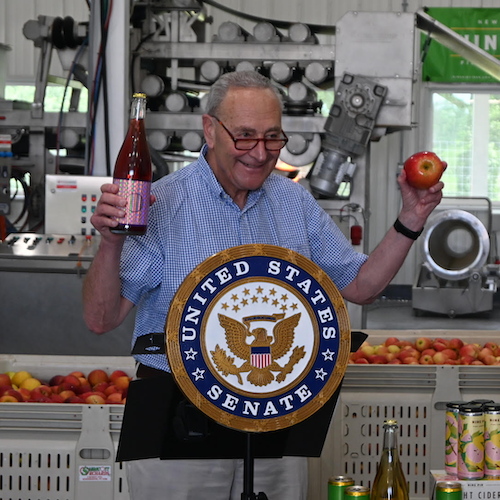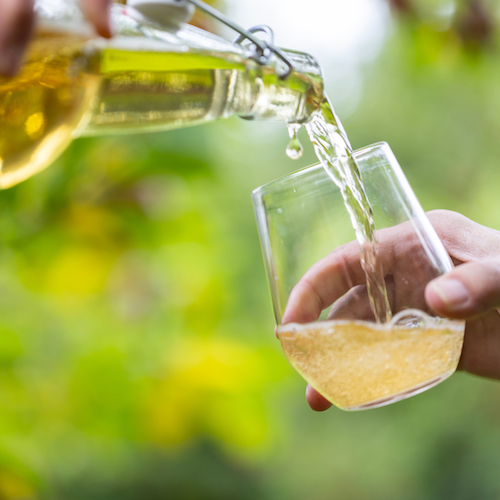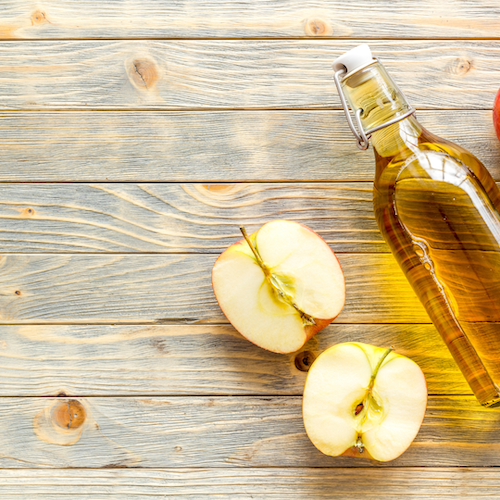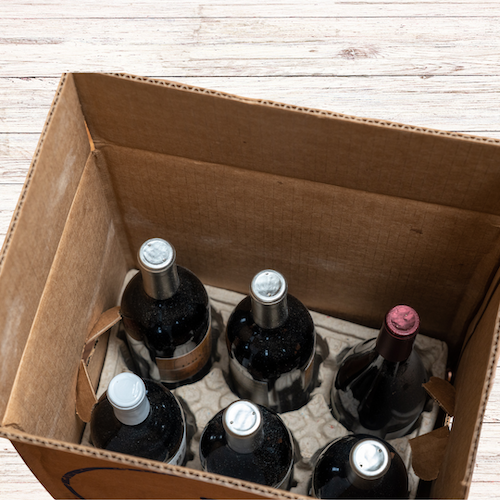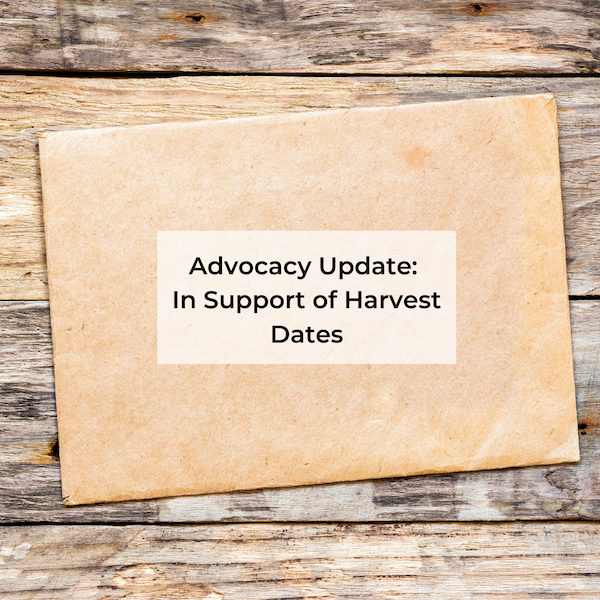Advocacy
Help Shape the Future of Cider: Take the 2023 ACA Cider Production Survey
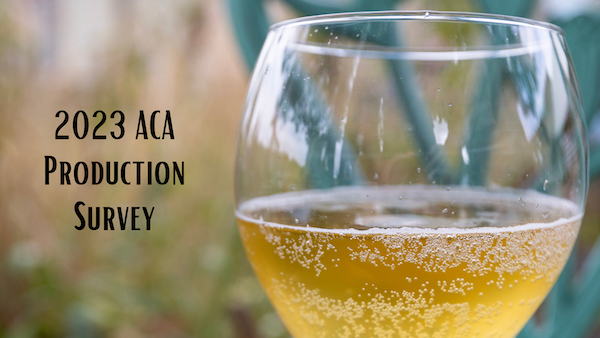
At the American Cider Association we work hard to support cider and cidermakers across the United States every day of the year, but we can’t do it without some help from you. We need to provide Congress, the media, and buyers with the most up-to-date and complete industry overview we possibly can. We are asking for you to assist us in collecting aggregated production information for the US cidery industry for 2023 so that we have the most accurate information to promote cider at all levels.
If you are licensed to make cider on a commercial basis we invite you to take our survey so we can gather information vital to promoting and protecting cider in the US.
Details:
- This survey will take about 30 minutes to complete.
- The survey is being aggregated and anonymized by a third party. They have agreed to not share information with us that might identify who you or your cidery are. YOUR PRIVACY MATTERS TO US.
- Your cidery name is collected by the 3rd party to ensure there are no duplicates, but the ACA will not store that information after the survey has been returned to us with identify features removed.
- We do ask a number of questions about sales, staffing and production for 2023. You will find it helpful to have that data handy before completing the survey.
- Note: If you produce wine or other beverages besides cider, please answer only considering your cider production.
- Deadline to complete the survey is December 13, 2024.
- Anyone who submits their completed survey and provides their contact info will be entered into a raffle to win an American Cider Association hoodie (4 available) and a grand prize winner will receive a complimentary ticket to CiderCon® 2025!
If you have any questions regarding this survey or how the data is used, please contact CEO of the American Cider Association Michelle McGrath.
We appreciate your help in allowing us to continue to promote cider across the United States!
New York’s Senator Schumer to Champion the Bubble Tax Modernization Act
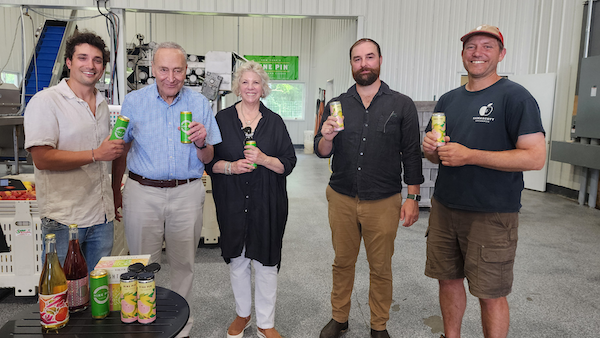
The American Cider Association is pleased to share that U.S. Senate Majority Leader Charles E. Schumer will be championing the Bubble Tax Modernization Act in the Senate. While standing at New York’s Samascott Orchards, a provider of apples to New York’s Nine Pin Cider, Senator Schumer emphasized his commitment to close the carbonation barrier that is continuing to hold back innovation in the cider industry.
“There is no reason that craft cidermakers like Albany’s Nine Pin should get hit with a whopping 1,400% tax increase if they want to make bubblier cider or cider that is mixed with other fruits which has soared in popularity. It hurts our craft cidermakers, hurts consumers, hurts our growers, and is slowing the growth of this booming industry in Upstate NY,” said Senator Schumer. “That is why I am proud to support the Bubble Tax Modernization Act to finally pop this convoluted carbonation tax hamstringing the craft cider industry.”
Senator Schumer has long been a supporter of the cider industry and was instrumental in the passage of the CIDER Act in 2016. The CIDER Act successfully lowered taxes and increased the allowable carbonation threshold on hard cider made from apples and pears. The Bubble Tax Modernization Act seeks to achieve a similar result for ciders fermented or flavored with fruits other than apples and pears.
In a state like New York where diversified farms are plentiful, putting a carbonation cap on fruit ciders limits opportunities for collaboration, innovation, and success with consumers for both growers and cidermakers. Products like Nine Pin’s blueberry cider, made with a blend of apples from Samascott Orchards and blueberries from Indian Ladder Farm, are a prime example of profit extension for farms through year-round value-added agriculture.
Additionally, extreme weather events can create gaps in apple harvest, making co-fermentation or blending with other desirable fruits necessary in certain harvest years. “Flexibility in fruit is important for growers,” says Michelle McGrath, CEO of the American Cider Association. “We’ve seen an uptick in co-ferments and fruit blends driven by consumer interest, but also driven by necessity. If your harvest was demolished by a freeze or a heat dome, why wouldn’t you consider blending with other fruit that had a better harvest? The bubble tax makes it harder to pivot when needed,” McGrath continued.
To put the current tax structure in content, 100 gallons of hard apple or pear cider costs $22 in federal taxes. However, if cidermakers make a co-fermented batch of cider with blackberries and carbonate it like other products, they will have to pay $340 in federal taxes. The Bubble Tax Modernization Act would allow fruit ciders to carbonate to the levels that hard apple and pear ciders are allowed. This change would allow cidermakers to give consumers the fruitier bubblier cider they want at a price they can afford.
The Bubble Tax Modernization and Tax Reform Act, which only applies to products under 8.5% alcohol by volume, would also open fruit mead and fruit wine up to more carbonation. Like cider, mead and winemakers with products under 8.5% ABV can carbonate at a higher threshold–until fruit is involved. In today’s beverage landscape, many producers are making cider, mead and wine. The lack of carbonation is a competitive disadvantage for these producers. The bill was introduced in January 2024 with bipartisan support on the house side through Congressman Earl Blumenauer (OR) and Congressman Mike Kelly (PA).
“We’re thrilled about Senator Schumer’s enthusiastic support of the Bubble Bill. He’s a champion for New York’s agricultural community and he gets that the community includes cider,” McGrath said.
To learn more about the current bubble tax, download our Bubble Tax Fact Sheet.
Government Affairs Update: ACA Lauds the CHEERS Act to Support Bars, Restaurants and Venues with Draft Systems
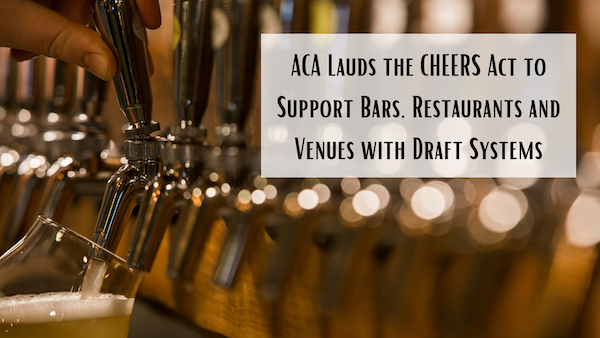
On March 11, U.S. Representatives Darin LaHood (R-IL-16) and Steven Horsford (D-NV-04) introduced the Creating Hospitality Economic Enhancement for Restaurants and Servers Act (CHEERS Act), a bipartisan effort aimed at supporting local businesses, restaurants, and bars with a focus on draft beverage systems. This legislation seeks to revitalize the hospitality industry by expanding tax incentives for investments in energy-efficient systems that include keg and tap property.
The American Cider Association has joined the Beer Institute, the Brewer’s Association, National Beer Wholesalers Association, the National Restaurant Association, the Independent Restaurant Coalition and others in applauding this effort. By offering support for the use of draft lines and keg equipment in establishments, the CHEERS Act recognizes the importance of draft beverages and their connection to a thriving hospitality sector.
Michelle McGrath, CEO of the American Cider Association, highlighted the significance of draft cider sales in the Beer Institute’s press release about the bill on March 11, stating that draft cider accounts for 60% of hard cider consumption at establishments.
“On-premise consumption plays a crucial role in introducing consumers to cider, making restaurants, pubs, taprooms, sports arenas, bars, and movie theaters vital components of the commercial cider ecosystem,” McGrath stated.
The CHEERS Act’s focus on supporting investments in new, energy-efficient draft equipment is welcomed by the cider industry as it provides much-needed relief for the hospitality sector. This legislation acknowledges the importance of draft sales in sustaining local small businesses and aims to contribute to their recovery during these challenging times.
The ACA applauds Representatives LaHood and Horsford for their introduction of the CHEERS Act.
To read more about the CHEERS Act visit the Beer Institute website.
Urge Congress to Support the Bubble Bill
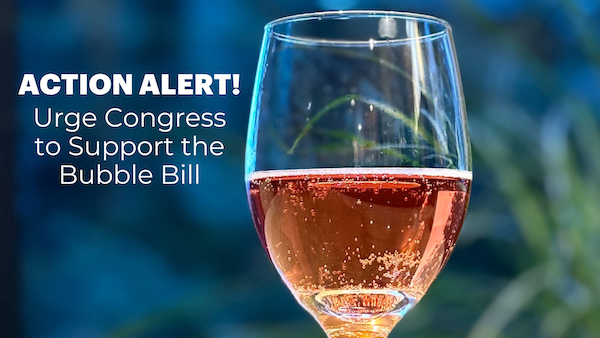
Earlier this year Representatives Earl Blumenauer (OR-D) & Mike Kelly (PA-R) introduced the Bubble Tax Modernization Act of 2024 (HR 7029) to the 118th Congress. Since then Representatives Suzanne Bonamici (OR-D), Andrea Salinas (OR-D), Lori Chavez-Deremer (OR-R), and Val Hoyle (OR-D) have signed on as co-sponors of the legislation. The “Bubble Bill” will amend a minor carbonation tax disparity for lower alcohol wine, cider and mead made with fruit. Read the complete bill here.
Despite the popularity of bubbly beverages, the carbonation tax–colloquially called the ‘bubble tax’ on fruit wine, fruit cider, and fruit mead makes carbonating these agricultural products at sparkling levels cost prohibitive. Most craft beverage entrepreneurs can’t afford to carbonate these products at the level the market wants. The result is that an important American agricultural sector is falling flat.
Current tax rates for low-ABV carbonated fruit wine, cider, and mead are $3.30 or $3.40 per gallon. Meanwhile low-ABV carbonated grape wines have a current tax rate of $1.07 per gallon. In addition, fruited beers, seltzers, hard kombucha, and ready-to-drink canned cocktails are carbonating freely to give consumers the bubbles they want.
Raising the floor of the carbonation tax threshold to include ALL low-ABV wine, cider, and mead to 0.64 grams of carbon dioxide per hundred milliliters will allow producers to compete more fairly in the evolving beverage market. The Craft Beverage Modernization and Tax Reform Act of 2020 achieved this for grape-only wines, but fruit-based craft beverages were overlooked. This created an excise tax disparity of $2.00 to $3.00 a gallon depending on the product. For more information download the Understanding Bubble Taxes explanatory document.
Allowing more carbonation will foster more economic opportunities for craft beverage makers, allow for more small producer collaborations, create increased opportunities for farms to stay viable with value-added products, and allow for diversification that could help farms and businesses mitigate disasters such as fires, droughts, floods, or crop disease.
Please ask your Congressional representatives to sign onto the Bubble Bill today to support American craft beverage producers and manufacturers.
Reps. Blumenauer & Kelly Introduce Bubble Bill
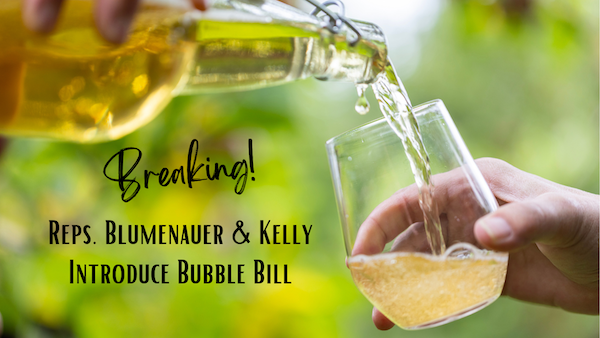
Representatives Blumenauer & Kelly Introduce the Bubble Tax Modernization Act
‘Bubble Bill’ Will Spur Innovation for Sparkling Co-fermented and Fruited Cider, Wine, and Mead
Washington, DC—Earlier today Representatives Earl Blumenauer (OR-D) & Mike Kelly (PA-R) introduced the Bubble Tax Modernization Act of 2024 (HR 7029) to the 118th Congress. The bill will amend a minor carbonation tax disparity for lower alcohol wine, cider and mead made with fruit.
Despite the popularity of bubbly beverages, the carbonation tax–colloquially called the ‘bubble tax’ on fruit wine, fruit cider, and fruit mead makes carbonating these agricultural products at sparkling levels cost prohibitive. Most craft beverage entrepreneurs can’t afford to carbonate these products at the level the market wants. The result is that an important American agricultural sector is falling flat.
“The cider industry is a quintessential American story. Pioneers taking what the land gives them and creating something magical. We must take every opportunity to support cidermakers, especially as the craft beverage industry recovers from the ravages of the pandemic. Right now, it is not a level playing field for cider, which is taxed more heavily than other carbonated, fruit-based beverages. My common-sense proposal will ensure cidermakers can create products for their customers, not the tax collector,” Rep. Blumenauer says.
Amie Fields, partner and sales manager at Botanist & Barrel Cidery & Winery in North Carolina, says the bill will enable innovation for their business.
“We are known for creativity and producing unique pet nats and bottle conditioned cider and wine with a range of ABVs, but recently we have been working on a series of lower alcohol content beverages. However, the carbonation tax currently disincentives our creativity, which hampers our ability to fully explore more sessionable beverages and boost our revenue by appealing to new customers,” explains Fields.
Current tax rates for low-ABV carbonated fruit wine, cider, and mead are $3.30 or $3.40 per gallon. Meanwhile low-ABV carbonated grape wines have a current tax rate of $1.07 per gallon. In addition, fruited beers, seltzers, hard kombucha, and ready-to-drink canned cocktails are carbonating freely to give consumers the bubbles they want.
Raising the floor of the carbonation tax threshold to include ALL low-ABV wine, cider, and mead to 0.64 grams of carbon dioxide per hundred milliliters will allow producers to compete more fairly in the evolving beverage market. The Craft Beverage Modernization and Tax Reform Act of 2020 achieved this for grape-only wines, but fruit-based craft beverages were overlooked. This created an excise tax disparity of $2.00 to $3.00 a gallon depending on the product.
Blumenauer’s legislation will address this disparity by changing how carbonation taxes are assessed. It will reduce a barrier for more innovative cider, fruit wine, and mead. In addition, it will create more economic opportunities for craft beverage makers, allow for small producer collaborations, create more opportunities for farms to stay viable with value-added products, and allow for diversification that could help farms and businesses mitigate disasters such as fires, droughts, floods, or disease.
HR 7029 is supported by the American Cider Association, the American Mead Makers Association, and Wine America.
###
The American Cider Association is an organization of cider and perry producers in the United States. Our mission is to grow a diverse and successful U.S. cider industry by providing valuable information, resources, and services to our members and by advocating on their behalf. You can learn more about them at www.ciderassociation.org.
Help Us Tell Cider’s Story: Take ACA’s 2022 Cider Production Survey
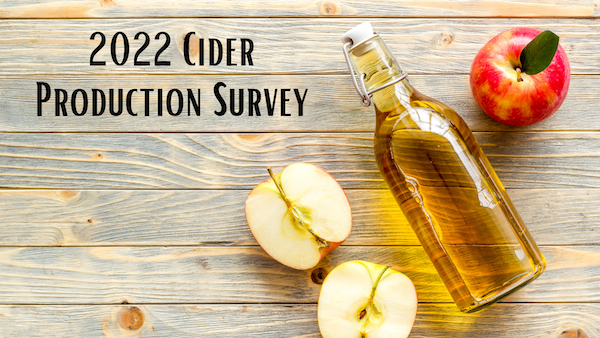
At the American Cider Association we work hard to support cider and cidermakers across the United States every day of the year, but we need your help to keep providing Congress, the media, and buyers with the most up-to-date and complete industry overview we possibly can. Please help us collect aggregated production information for the U.S. cider industry for 2022.
If you are licensed to make cider on a commercial basis we invite you to take our survey so we can gather information vital to promoting and protecting cider in the U.S.
Details:
- This survey will take about 20 minutes to complete.
- The survey is being aggregated and anonymized by an independent third party. They have agreed to not share information with us that might identify who you or your cidery are, and to only share aggregate data with us. YOUR PRIVACY MATTERS TO US.
- Your cidery name is collected by the 3rd party to ensure there are no duplicates, but the ACA will not store that information after the survey has been returned to us with identify features removed.
- We do ask a number of questions about sales and production for 2022. You will find it helpful to have that data handy before completing the survey.
- Note: If you produce wine or other beverages besides cider, please answer only considering your cider production.
- Deadline to complete the survey is August 10, 2023.
- Anyone who submits their completed survey and provides their contact info will be entered into a raffle to win an American Cider Association hoodie (4 available) and a grand prize winner will receive a complimentary ticket to CiderCon® 2024!
If you have any questions regarding this survey or how the data is used, please contact CEO of the American Cider Association Michelle McGrath.
We appreciate your help in allowing us to continue to promote cider across the United States!
Urge Congress to Support the USPS Shipping Equity Act
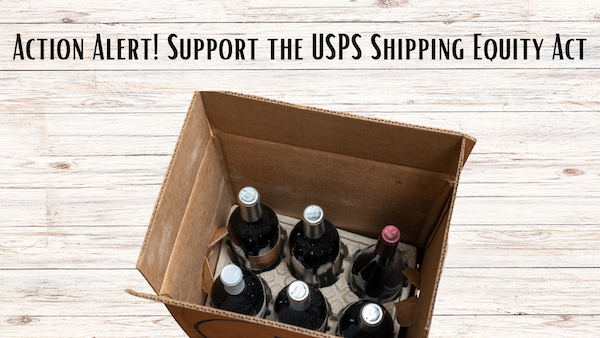
On May 23 Rep. Dan Newhouse (R-WA) once again introduced the USPS Shipping Equity Act in Congress alongside Rep. Jennifer Wexton (D-VA) and 8 other House co-sponsors. Currently, the U.S. Postal Service is not allowed to ship cider, beer, wine, or distilled spirits, because of a leftover, outdated ban put into effect during the Prohibition era. The USPS Shipping Equity Act would give parity to the US Postal Service, allowing it to ship licensed alcohol for commerce just like FedEex or UPS. Additionally, the USPS Shipping Equity Act gives rural producers access to another option for shipping alcoholic beverages. This bill is critical in leveling the playing field and increasing consumer and manufacturer choice while bringing in millions of dollars in revenue per year that will support small businesses, rural communities, agricultural enterprises and the US Postal Service.
We encourage you to email your Congressional representatives and urge them to cosponsor the USPS Shipping Equity Act. We have set up a campaign with an email template that you can use. Click the button below to be taken to the campaign. After you’ve emailed your reps, we encourage you to take a moment to share your actions on social media and via email to inspire others to reach out to their representatives as well.
Have questions? Please email ACA CEO Michelle McGrath.
ACA Joins with Organization to Support USPS Shipping Equity Act
The American Cider Association has been working with organizations across the United States to urge Congress to support the USPS Shipping Equity Act (H.R. 3287/S. 1663).
The U.S. Postal Service is not allowed to ship cider, beer, wine, or distilled spirits, because of a leftover, outdated ban put into effect during the Prohibition era. The result? Restricting options for producers and customers alike, affecting many U.S. cideries where e-commerce is essential for business. The USPS Shipping Equity Act would give parity to the Postal Service, allowing it to ship licensed alcohol for commerce just like FedEex or UPS. Additionaly, the USPS Shipping Equity Act gives rural producers access to another option for shipping alcoholic beverages.
Recently organizations across the country, including the ACA, signed on to a letter sent to members of Congress encouraging them to support the USPS Shipping Equity Act.
ACA Advocates for Ice Cider Standards
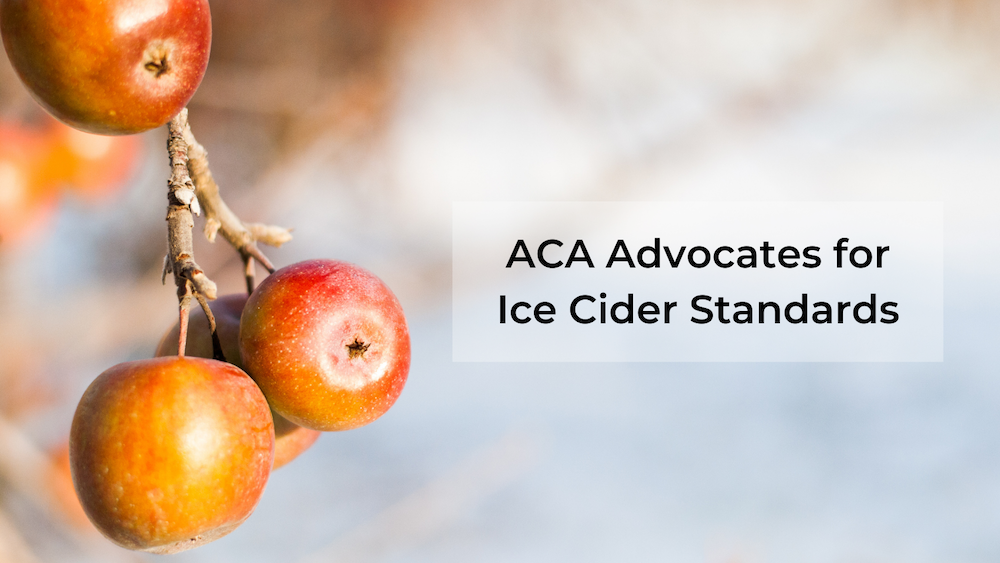
The board of the American Cider Association recently send a letter to the L’Association des Industries des Cidres et Vins de fruits de l’UE (AICV), or the European Cider and Fruit Wine Association urging them to recognize the precedent for the definition of Ice Cider (Cidre de Glace) set by the government of Quebec, Canada.
The AICV is currently in the process of developing marketing standards for Ice Cider/Apple Ice Wine in Europe and the ACA board felt it was timely to urge that the organization adopt the definition set by the government of Quebec, where the style of cider originated in the 1990s as the standard definition.
The definition is as follows: “Ice Cider” – cider obtained by the fermentation of juice of apples that has a pre-fermentation sugar content of not less than 30° Brix achieved solely by natural cold, producing a finished product with a residual sugar content of not less than 130 g per litre and an actual alcoholic strength of more than 7% by volume but not more than 13% by volume.”
This definition has been accepted by the ACA and by GLINTCAP and the required use of natural cold weather for cryo-extraction or cryo-concentration is enforced by our U.S. Federal Alcohol & Tobacco Tax & Trade Bureau (TTB) with respect to labeling.
You can read the full letter from the ACA board here.
Advocacy Update: In Support of Harvest Dates
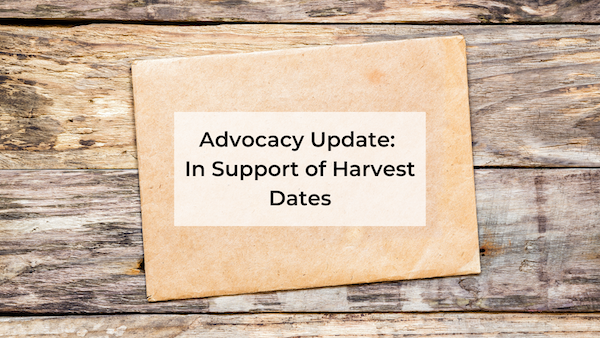
The American Cider Association (ACA) recently sent a letter to the TTB voicing the ACA’s support of a specific proposed labeling rule included in Notice 176, published in late 2018.
NOTICE 176
The notice contained proposed rules for modernizing wine (including cider), spirits and malt beverages labeling and advertising regulations. The ACA, many regional cider guilds and dozens of our members submitted comments on the notice during the official comment period. The comments included support for many but not all of the proposed rules.
Some positive change has resulted from those comments. We are hopeful our letter will usher further TTB announcements in favor of our official comments first made in 2019. This letter is our third mention of our support of harvest dates since our official comments posted.
OUR LETTER
The ACA’s recent letter to the TTB reiterated our support for the Notice 176 proposal to allow the use of harvest dates on qualifying wines and ciders. Harvest dates would create an important opportunity to distinguish a maker’s cider from season to season. Read our letter for further details of the proposal and our reasons for supporting it.
THE VOICE OF THE INDUSTRY
Our members’ support allows the ACA to amplify the voice of cider and to develop relationships with the TTB and others for the benefit of our industry. Through the collective power of our members, we have a stronger voice for cider when it matters. Our recent letter in support of harvest dates is one example of our commitment to advancing the needs of all cider producers, big or small.
We are grateful for the TTB for seeking the input of industry members regarding the proposed rules in Notice 176, and we eagerly await further announcements regarding the creation of harvest dates.


